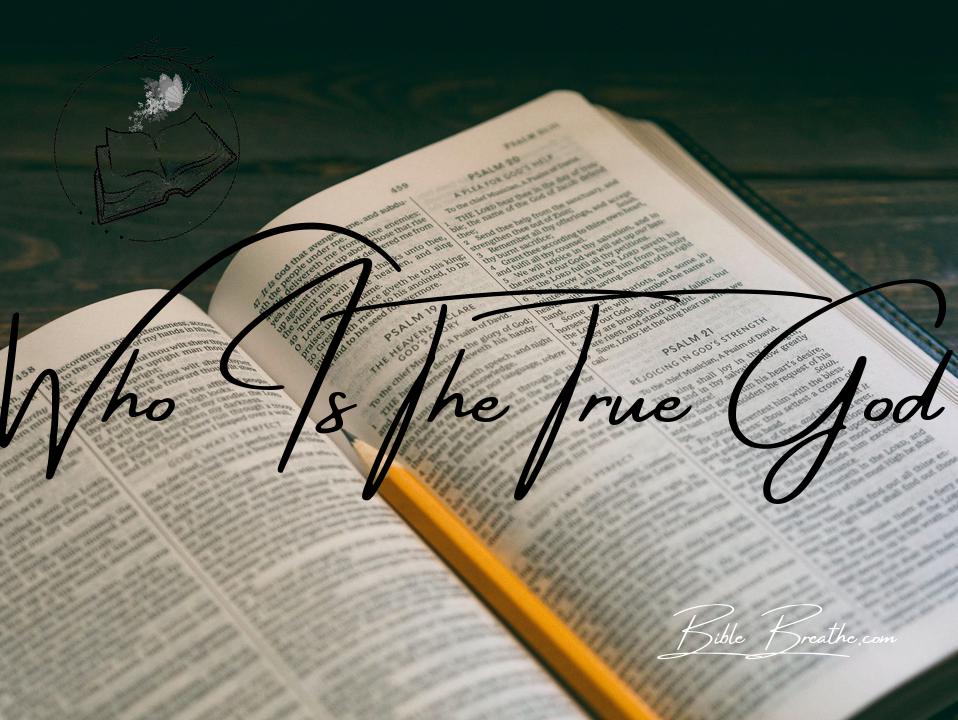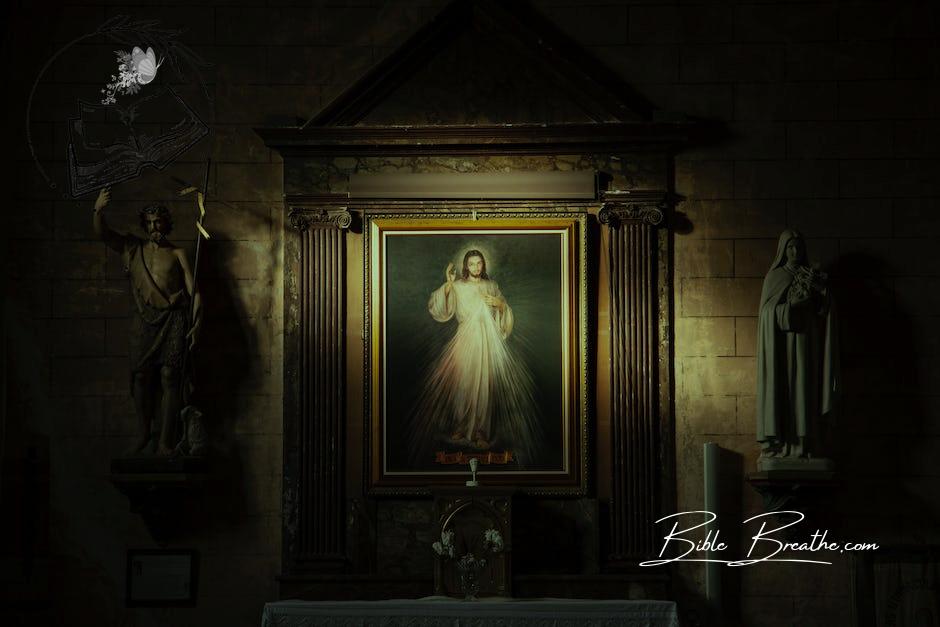Who’s the real deal when it comes to God?
Picture it like an epic journey, where you’re about to discover the true identity of Jesus.
It’s like unraveling a thrilling mystery.
In the New Testament, we meet a figure who’s caused quite a stir—Jesus.
Now, is He just a wise dude, a prophet, or could there be more to it?
Let’s dive into the good stuff.
Understanding the deity of Jesus is like understanding the secret sauce of Christianity – it’s all about that divine recipe.
Think of the Trinity as a three-in-one combo, Father, Son, and Holy Spirit.
But how did the early folks view Jesus?
As the Son of God, or is it more like shaking up the monotheism jar?
We’ll explore the New Testament’s take on Jesus, from His pre-existence to being the grand Creator.
We’ll get inside His divine vibes, and see how the Apostles recognized it.
And brace yourselves for the Jewish leaders’ reactions, they were shook!
The early Church?
They were all about worshipping Jesus.
So, come along on this journey and let’s uncover the truth about Jesus – the Savior, the Christ, the Lord, the Alpha and Omega, and God’s ultimate masterpiece.
🌟
Key Takeaways
-
The Christian belief centers on the understanding of Jesus’ deity. Jesus is considered the true God, an essential part of the Holy Trinity—Father, Son, and Holy Spirit. His divine nature is fundamental to the Christian faith and underpins the belief in salvation through faith in Christ.
-
The New Testament consistently affirms Jesus’ deity. Throughout its writings, the divinity of Jesus is emphasized through various passages, teachings, and accounts of miracles. These affirmations serve as a theological foundation, highlighting Jesus’ unique and divine nature.
-
Understanding Jesus’ true identity is crucial for salvation. The belief in Jesus as the true God and Savior is pivotal for redemption and eternal life. Acknowledging Jesus’ divinity and accepting him as the Son of God is a fundamental step toward a personal relationship with God and the assurance of salvation.
-
The recognition of Jesus as the true God is not merely a theological concept but a belief that shapes Christian life and practice. It influences how believers worship, pray, and live out their faith, as they follow the teachings and example set by Jesus.
-
In summary, the understanding of Jesus’ deity is central to Christian belief, affirmed consistently in the New Testament. This recognition is essential for salvation, shaping the way believers perceive and interact with God, ultimately guiding their journey of faith.
Discovering the True God: Jesus’ Divine Nature
Photo modified by BibleBreathe.com. Original photo by Alem Sánchez on Pexels
When it comes to matters of faith, there’s one question that echoes through the ages, resonating deep within the hearts and minds of those seeking spiritual truth: who is the true God?
It’s not just a passing thought; it’s a profound inquiry that goes to the core of our beliefs.
The Heart of Christian Faith: Jesus, the Son of God
For Christians, Jesus Christ isn’t merely a historical figure or a wise teacher; He represents the divine.
He’s the Son of God, an inseparable part of the Holy Trinity—the Father, the Son, and the Holy Spirit.
To truly understand the true God, we must grasp the significance of Jesus’ deity.
“I and my Father are one.” – John 10:30 (KJV)
Addressing Doubts and Misconceptions about Jesus’ Divine Nature
Doubts often cloud the concept of Jesus being both man and God.
Skeptics struggle to comprehend how the infinite can dwell within the finite.
It’s like attempting to pour the vast ocean into a tiny teacup, trying to confine the boundless within earthly limits.
Scripture: Our Guiding Light in Recognizing Jesus’ Divinity
To unravel the truth about Jesus, we turn to the Word of God, the Holy Scripture.
Here, we encounter a rich tapestry of verses woven throughout history, affirming the divine essence of Jesus.
The Bible serves as our compass, navigating us through the stormy seas of doubt, steadfastly pointing us toward the truth.
In the beginning was the Word, and the Word was with God, and the Word was God.” – John 1:1 (KJV)
In our pursuit of understanding the true God, we peel away layers of theological complexity and address objections with unwavering faith.
By embracing Jesus as the Son of God, the Messiah, the Savior, and the very embodiment of divinity, we discover profound meaning in our faith—a faith firmly rooted in the timeless wisdom of Scripture.
The True God Unveiled
Ever wondered who’s at the helm of the universe, steering the ship of existence?
It’s like peering through a telescope into the cosmos, trying to grasp the enormity of it all.
Let’s dive into the core belief of Christianity: the identity of the true God.
One God, Three Dimensions
Think of it like a masterful play with three lead characters, each with their unique role, yet together they craft an awe-inspiring storyline.
We’ve got the Father, the Son, and the Holy Spirit, and they’re not just co-stars; they’re one inseparable divine trio.
As John’s Gospel puts it:
For there are three that bear record in heaven, the Father, the Word, and the Holy Ghost: and these three are one.” – 1 John 5:7 (KJV)
This unity, like a precious gem reflecting light from all angles, is a mystery and a wonder.
The Divide: Monotheism vs. Unitarianism
As we dig deeper, we hit a crossroads.
On one path, there’s monotheism, the belief in a single, undivided God.
On the other, Unitarianism argues for a singular, indivisible deity.
Christianity firmly stands with monotheism, proclaiming the oneness of God while recognizing the threefold revelation through the Father, the Son, and the Holy Spirit.
Roles in Harmony: Father, Son, and Holy Spirit
Imagine a magnificent orchestra.
The Father conducts, directing the symphony of creation.
The Son takes center stage, the virtuoso of redemption.
The Holy Spirit, like a skilled musician, weaves through every note, guiding, comforting, and empowering.
The Father plans, the Son executes, and the Spirit brings it all to life—a divine trio choreographing the dance of existence.
As we journey through these truths, we uncover the heart of Christianity, where the oneness of God finds its fullest expression in the divine dance of the Trinity.
The Timeless Truth: Jesus’ Existence Before Creation
Photo modified by BibleBreathe.com. Original photo by RDNE Stock project on Pexels
When it comes to theological exploration, diving into the profound mystery of Jesus’ pre-existence is like peeling back the layers of time itself.
How can we wrap our minds around a concept so majestic and ancient that it predates the very existence of the world?
Unveiling Jesus’ Eternal Existence in the New Testament
As we journey through the pages of the New Testament, a portrait of Jesus emerges that transcends the boundaries of earthly history.
He isn’t a newcomer to the stage of existence; rather, He is portrayed as having existed for all eternity, even before the foundations of the world were laid.
The apostle John masterfully paints this eternal reality in his Gospel:
In the beginning was the Word, and the Word was with God, and the Word was God.” – John 1:1 (KJV)
These words transport us to a time before time itself, where the Word, Jesus Christ, stood in divine existence—an existence that surpasses mortal comprehension.
The Significance of John 1:1 and the Word’s Role in Creation
Within the literary masterpiece of John 1:1, we discover a profound truth that reverberates throughout the halls of theological contemplation.
The “Word” not only coexisted with God but was, in fact, God.
This divine entity wasn’t a mere spectator in the creation of the universe; He was the very architect of creation.
“All things were made by him; and without him was not any thing made that was made.” – John 1:3 (KJV)
This passage reveals Jesus as the Creator, the One who orchestrated the cosmos and set the stars in their celestial courses.
It unveils a facet of the true God—a God whose existence predates time, whose creative power brought forth the universe, and whose eternal nature surpasses mortal understanding.
As we seek to understand the true God, we encounter Jesus—existing before the world, intimately involved in creation, and embodying a divine essence that stretches beyond the limits of our temporal understanding.
The more we grasp this eternal truth, the more we embrace the essence of the true God.
Jesus: The Ultimate Creator
Photo modified by BibleBreathe.com. Original photo by Ivan Samkov on Pexels
When it comes to understanding who Jesus truly is, there’s a vital aspect that forms the very foundation of Christianity: Jesus as the Creator.
Dispelling the Notion of a Created Jesus
Some narratives paint a picture of Jesus as a mere mortal, a created being.
But when we dive deep into the roots of our faith, we discover a different narrative.
The Bible itself proclaims Jesus as eternal, uncreated, existing before the foundations of the world were laid down.
In the Gospel of John, we find this timeless truth:
In the beginning was the Word, and the Word was with God, and the Word was God.” – John 1:1 (KJV)
Jesus, the Word incarnate, didn’t come into existence; He was an integral part of the divine from the very beginning.
Jesus’ Supreme Role in Creation
Think of an artist not only crafting a painting but also breathing life into it.
That’s the role of Jesus, the Creator.
He’s not just a skilled craftsman; He’s the very essence from which all of creation flows.
The Apostle Paul confirms this in Colossians:
“For by him were all things created, that are in heaven, and that are in earth, visible and invisible, whether they be thrones, or dominions, or principalities, or powers: all things were created by him, and for him.” – Colossians 1:16 (KJV)
He didn’t just shape the physical world but also the spiritual realm, the seen and the unseen.
Imagine a maestro composing a masterpiece, and you catch a glimpse of Jesus, the divine Composer, weaving the tapestry of existence.
As we unravel the truth about Jesus, we uncover a cornerstone of Christian belief: Jesus isn’t a creation; He is the Creator, holding the universe and everything within it in the palm of His hand.
The Divine Proclamation: Jesus’ “I Am” Declarations
Photo modified by BibleBreathe.com. Original photo by Eduardo Braga on Pexels
When we delve into the exploration of Jesus’ identity as the true God, we come face to face with a series of powerful declarations, each carrying profound divine significance.
These declarations are encapsulated in two simple yet immensely potent words: “I am.”
The Significance of Jesus’ “I Am” Statements
Throughout the New Testament, Jesus used the phrase “I am” on multiple occasions, asserting His divine nature and essence.
This was no ordinary self-reference; it was a direct alignment with the name God used to reveal Himself to Moses at the burning bush—an unmistakable claim to deity.
‘Verily, verily, I say unto you, Before Abraham was, I am.'” – John 8:58 (KJV)
By uttering “I am,” Jesus connected Himself to the eternal God, transcending the confines of time and affirming His pre-existence.
The Reaction of Jewish Leaders to Jesus’ Claims
When Jesus boldly declared His divine identity, the Jewish leaders reacted with a mix of astonishment and indignation.
To them, His words were not merely bold; they were seen as blasphemous.
In their eyes, Jesus, a mere man, was elevating Himself to the status of God—a concept they vehemently opposed.
“‘Therefore the Jews sought the more to kill him, because he not only had broken the sabbath, but said also that God was his Father, making himself equal with God.'” – John 5:18 (KJV)
Jesus’ claims shook the very foundations of their traditional beliefs.
To them, the “I am” statements were beyond the realm of possibility.
Yet, these very statements echoed the eternal truth that Jesus was, without a doubt, the true God incarnate.
In our quest to understand the true God, we unravel the profound “I am” declarations of Jesus, realizing that they were not mere words, but powerful affirmations of His divine essence.
Jesus, in His own words, painted a vivid portrait of divinity, inviting all to recognize and embrace the eternal Godhood that dwelled within Him.
Apostolic Revelation: Jesus, the Divine Unveiled
Photo modified by BibleBreathe.com. Original photo by Julia Volk on Pexels
As we journey through the early days of the Church, one truth resounds clearly in the writings of the Apostles: the revelation of Jesus as divine.
Peter, James, and John: Defenders of Jesus’ Divinity
Imagine a panel of esteemed judges, all in unanimous agreement about a momentous truth.
In a similar vein, Peter, James, and John—cornerstones of the early Church—stood together in their proclamation of Jesus as God in the flesh.
Peter‘s declaration shines brightly:
Thou art the Christ, the Son of the living God.” – Matthew 16:16 (KJV)
This wasn’t just a casual statement; it was a divine revelation.
Jesus, the Christ, the Son of the living God—these titles resound with the acknowledgment of His divine nature.
The Weight of Titles
Think of titles as badges of identity.
In Jesus’ case, each title carries profound meaning.
Christ – the Anointed One, the Messiah; Son of God – a deep relationship with the Father; Lord – the supreme ruler of all.
These titles weren’t randomly assigned; they were deliberate affirmations of Jesus’ divinity.
Guided by divine insight, the Apostles understood that these titles weren’t mere honorifics; they were divine proclamations.
The Apostle Paul reinforces this truth:
“For in him dwelleth all the fulness of the Godhead bodily.” – Colossians 2:9 (KJV)
Here, Paul underscores that the complete essence of the Godhead resides in Jesus—a powerful testament to His divinity.
As we explore the Apostles’ recognition of Jesus, we uncover a foundational truth: Jesus wasn’t just a wise teacher or prophet; He was and remains divine, God in human form, acknowledged as such by those who walked and talked with Him.
Revealing Divinity: When Jewish Leaders Confronted Jesus’ Claim
Photo modified by BibleBreathe.com. Original photo by Alem Sánchez on Pexels
In the unfolding story of Jesus’ life and teachings, a critical moment emerges when the religious leaders of the time confront His bold declarations of divinity.
Their reactions, filled with disbelief and indignation, chart the course of Jesus’ earthly journey.
How Jewish Leaders Reacted to Jesus’ Actions and Words
Through His deeds and words, Jesus triggered a whirlwind of responses among the Jewish leaders.
He performed miraculous healings, restored sight to the blind, and even brought the dead back to life.
But it was His assertion of being the true God—the embodiment of divinity—that struck at the core of their traditional beliefs.
“‘I and my Father are one.’ Then the Jews took up stones again to stone him.” – John 10:30-31 (KJV)
Jesus’ claim of unity with the Father was viewed as a direct challenge to the established religious order.
These leaders, deeply rooted in their interpretation of monotheism, struggled to accept such a profound departure from their understanding of God.
Accusations of Blasphemy Against Jesus
In the eyes of the Jewish leaders, Jesus’ claims reached what they saw as the pinnacle of blasphemy—a crime punishable by death.
To assert equality with God was a direct affront to their deeply held monotheistic beliefs.
“‘The Jews answered him, saying, For a good work we stone thee not; but for blasphemy; and because that thou, being a man, makest thyself God.'” – John 10:33 (KJV)
In their eyes, Jesus had crossed a sacred boundary.
His teachings challenged their authority and their understanding of God’s nature.
This clash of beliefs set the stage for the crucible of faith that defined Jesus’ earthly mission.
In the vast tapestry of religious history, the moment when Jewish leaders acknowledged Jesus’ claim to divinity stands as a pivotal point.
It underscores the revolutionary nature of His message, one that shattered the preconceptions of the religious elite.
Jesus, the true God incarnate, invited the world to reevaluate their perception of God and embrace a divine reality that transcended their expectations.
The Early Church’s Heartfelt Reverence for Jesus
Photo modified by BibleBreathe.com. Original photo by Luis Quintero on Pexels
As the early Christian community blossomed, a deep and intimate connection with Jesus took root—a connection grounded in worship and prayer.
Praying to Jesus: A Mark of Devotion
Imagine a close friend, someone you trust with your deepest thoughts, seek counsel from, and pour out your soul to.
For the early Church, Jesus was more than a distant historical figure; He was a present, caring confidant.
Praying to Jesus became a fundamental aspect of their faith.
Stephen, even in the face of martyrdom, exemplified this profound connection:
“Lord Jesus, receive my spirit.” – Acts 7:59 (KJV)
In moments of joy, sorrow, or need, they turned to Jesus, acknowledging His divine nature and His role as their intercessor.
Acts of Worship Directed at Jesus
Picture a grand celebration where the guest of honor is lavished with praise and adoration.
In the New Testament, we encounter instances when Jesus, the honored guest, receives worship.
The Magi, upon discovering the young Jesus, knelt down and worshipped Him (Matthew 2:11).
Even His disciples, witnessing His power over the raging storm, worshipped Him, declaring:
“Of a truth thou art the Son of God.” – Matthew 14:33 (KJV)
Their worship wasn’t misplaced; it was a profound recognition of Jesus’ divinity.
As we delve into the early Church’s relationship with Jesus, we uncover a deep devotion—a living faith that acknowledged Jesus as not just a wise teacher or prophet, but as the true God deserving of worship, adoration, and heartfelt prayers.
The Real Deal: Jesus’ Bold Claims
Photo modified by BibleBreathe.com. Original photo by Alem Sánchez on Pexels
Alright, family, buckle up because we’re diving into a question that shakes the foundations of our faith: who’s the real deal, the true God?
This ain’t just a theological noodle-scratcher; it’s about understanding the mind-blowing claims Jesus dropped on us.
Jesus Spoke Like Nobody Else
Picture this: Jesus saying, “Before Abraham was, I am” (John 8:58, KJV).
Hold up!
“I am”?
That’s not just a regular sentence; that’s a time-traveling, mind-bending declaration of existence that goes way beyond our human comprehension.
And when Jesus says, “I am the way, the truth, and the life” (John 14:6, KJV), he ain’t giving us some GPS coordinates.
No, he’s saying, “I’m not just pointing you in the right direction; I am the direction!”
Jesus’ Authority Unlocks Salvation
Now, let’s talk about authority — not the “I’m in charge” kind but the kind that unlocks the door to eternal life.
Jesus hits us with, “I am the resurrection, and the life” (John 11:25, KJV).
This ain’t a philosophical statement; it’s the key to a life that never ends.
Jesus isn’t just a messenger with a cool message.
He is the message — the living Word in the flesh, bringing salvation right to our doorstep.
From Recognition to Worship
Now, let’s break down those big words in the LSI KEYWORDs.
Deity of Jesus, Trinity, recognition by apostles, Jewish leaders’ reaction — it’s like unpacking a treasure chest of truths.
The early church wasn’t playing games.
They recognized Jesus as more than a VIP; they worshiped Him as the Messiah, the Savior, the Christ.
He wasn’t just the starting point; He was the A to Z, the whole shebang of the divine.
So, when we ask, who’s the true God?
Jesus isn’t just in the running; He’s holding the championship belt.
This ain’t a Sunday school puzzle; it’s a life-transforming revelation.
Jesus is the real deal — our Creator, Savior, and Lord.
“I am the way, the truth, and the life: no man cometh unto the Father, but by me.” – John 14:6 (KJV)
Unveiling the True God: Jesus’ Unique Claims
Photo modified by BibleBreathe.com. Original photo by Franck Denis on Pexels
Hey fam, PASTOR Mike here, and I’m pumped to dive into the heart of a question that’s been echoing through the ages: who’s the real deal when it comes to God?
We’re not just talking theories; we’re talking about Jesus and His jaw-dropping claims that set Him apart.
Jesus’ Unprecedented Statements
Now, picture this: Jesus, surrounded by skeptics and seekers alike, drops a bombshell.
He says, and I’m quoting here, “I am the way, the truth, and the life: no man cometh unto the Father, but by me” (John 14:6 KJV).
Now, that’s not your everyday teacher talk.
It’s a divine declaration, an exclusive VIP pass to connect with the Creator.
The Significance of Jesus’ Authority
But hold up, it’s not just about dropping impressive lines.
Jesus is claiming authority that goes beyond the charts.
In a world filled with spiritual options, He’s not just one of the choices; He’s the only way to real, lasting salvation.
His words are like a spiritual GPS guiding us to a connection with the Creator that’s deeper than we can imagine.
Role in Salvation: Savior, Messiah, Lord
Now, let’s talk roles.
Jesus isn’t just flexing His identity; He’s the Savior, the promised Messiah, and the Big Boss – the Lord of all.
Flip through the New Testament, and you’ll see prophecies aligning with His life.
He’s not just part of the story; He’s the whole plot, the Alpha and Omega, bringing divine love and redemption into the picture.
As we unravel these mind-blowing claims, we’re getting into the good stuff – Jesus’s divine nature, the Trinity, and Him rocking the Creator hat.
The apostles didn’t miss the memo, recognizing His divinity, and the early Church?
Oh, they were all in, worshiping in a way that still echoes today.
So, when we dig into monotheism, the Trinity dance, and the wild ride of Jesus’s life, it’s not just a philosophical chat.
It’s a divine revelation, pushing us to think about the essence of the one true God.
The reactions of the Jewish leaders, the apostles cheering Jesus on, and the early Church throwing down worship?
It’s all proof that Jesus isn’t just dropping lines; He’s the real deal – the Messiah, the Savior, the Lord.
In this deep dive, we’re not just exploring theories; we’re getting up close and personal with the one true God.
It’s not just a story; it’s an invitation to soak in the divine, bow before the sacred, and fully embrace Jesus – the true God in the flesh.
Frequently Asked Questions (FAQs) About Who Is The True God
What does the Bible say about the one true God?
The Bible teaches that there is one true God, and it emphasizes monotheism.
Verses like Deuteronomy 6:4 affirm, ‘Hear, O Israel: The Lord our God, the Lord is one.
How is Jesus different from other “sons of God” in the Bible?
Jesus is distinct as the Son of God in Christian belief, signifying His divine nature.
While others are called ‘sons of God’ metaphorically, Jesus’ title represents a unique relationship with God as the Second Person of the Trinity.
Why did the Jewish leaders want to crucify Jesus?
The Jewish leaders perceived Jesus as a threat to their authority and teachings.
They considered his claims, such as being the Son of God or the Messiah, as blasphemous and undermining their religious structure.
His popularity and teachings challenging traditional beliefs and practices led to their desire to eliminate him.
{
“@context”: “https://schema.org”,
“@type”: “FAQPage”,
“mainEntity”: [
{
“@type”: “Question”,
“name”: “What does the Bible say about the one true God?”,
“acceptedAnswer”: {
“@type”: “Answer”,
“text”: “The Bible teaches that there is one true God, and it emphasizes monotheism. Verses like Deuteronomy 6:4 affirm, ‘Hear, O Israel: The Lord our God, the Lord is one.”
}
},
{
“@type”: “Question”,
“name”: “How is Jesus different from other “sons of God” in the Bible?”,
“acceptedAnswer”: {
“@type”: “Answer”,
“text”: “Jesus is distinct as the Son of God in Christian belief, signifying His divine nature. While others are called ‘sons of God’ metaphorically, Jesus’ title represents a unique relationship with God as the Second Person of the Trinity.”
}
},
{
“@type”: “Question”,
“name”: “Why did the Jewish leaders want to crucify Jesus?”,
“acceptedAnswer”: {
“@type”: “Answer”,
“text”: “The Jewish leaders perceived Jesus as a threat to their authority and teachings. They considered his claims, such as being the Son of God or the Messiah, as blasphemous and undermining their religious structure. His popularity and teachings challenging traditional beliefs and practices led to their desire to eliminate him.”
}
}
]
}










